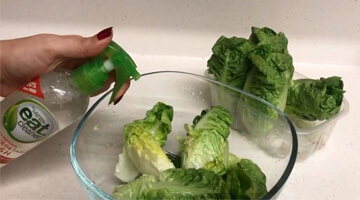Danger!! Pesticides, Herbicides

These chemicals have been linked to several kinds of cancers. Also Studies linked chemical pesticides with increases in body mass index (BMI) in children and insulin resistance.
Many studies proved that Pesticides are neuro-toxic and carcinogenic. A study in the journal Neurotoxicology found that chronic exposure to some common pesticides significantly increased the risk of Parkinson’s disease. Other Studies in adults and children have also linked pesticide exposure to kidney, pancreatic, prostate, breast, and stomach cancers, as well as respiratory problems and depression.
I know this all sounds scary, but you can greatly lower your exposure to pesticides by eating organic.
organic is often more expensive, which can be an obstacle for many people. Is it worth it? In some cases, I say absolutely YES. The Environmental Working Group (EWG) lists the fruits and vegetables that are most and least contaminated with pesticide residue. These lists, known as the “Dirty Dozen,” and the “Clean Fifteen.”
There is no need to buy everything organic. If you buy in-season produce at farmers’ markets from small local growers is probably better.
Below, you’ll find list of 48 foods ranked from most pesticide to least. Choose from the bottom 30 of the list if you can’t find organic. And if you want to eat any of the foods in the top 20, then choose organic as much as possible.
- Strawberries
- Apples
- Nectarines
- Peaches
- Celery
- Grapes
- Cherries
- Spinach
- Tomatoes
- Sweet bell peppers
- Cherry tomatoes
- Cucumbers
- Imported snap peas
- Domestic blueberries
- Potatoes
- Hot peppers
- Lettuce
- Kale/collard greens
- Imported blueberries
- Plums
- Pears
- Raspberries
- Carrots
- Winter squash
- Tangerines
- Summer squash
- Domestic snap peas
- Green onions
- Bananas
- Oranges
- Watermelon
- Broccoli
- Sweet potatoes
- Mushrooms
- Cauliflower
- Cantaloupe
- Grapefruit
- Honeydew
- Eggplant
- Kiwi
- Papaya
- Mango
- Asparagus
- Onions
- Pineapples
- Sweet corn
- Avocados
5 Best Ways to Remove Pesticides From Fruits and Vegetables
- Wash Fruit and Vegetables with Detergent
- Wash Fruit and Vegetables with Vinegar
- Use a Commercial Fruit Cleaner (EAT CLEANER )
- Make Your Own Fruit and Vegetable Cleaner
- tablespoon lemon juice
- 2 tablespoons white vinegar
- 1 cup water in a spray-topped bottle
- 1 tablespoon of lemon juice
- 2 tablespoons of baking soda
- 1 cup / 250ml water
- Peeling
Washing up with water alone is not enough to properly get rid of pesticides. Some people add a bit of detergent or washing-up liquid to the water and gently wash the fruits and vegetables which will lift off most of the pesticide residue.
Just make sure you rinse with clean water properly afterwards, and I should note that is not a healthy way.
Vinegar is great for removing bacteria and can also help remove unwanted wax you often see on fruits like imported apples.
The way to use vinegar to wash your fruit and vegetables, is to use 1 part vinegar to 3 parts water (3:1 – water:vinegar).
Leave the fruits and vegetables soaking in a vinegar/water solution for 10-20 minutes and then rinse.
One of the Best ways is using the commercial all natural fruit cleaners available. These cleaners can remove pesticides, wax, and 99.9% of bacteria.
Make sure you pick a natural product and avoid the ammonia-based cleaners.
Try one of these recipes to make your very own fruit and vegetable super cleaner.
With vinegar:
With baking soda:
Spray your fruit and vegetables with this little home-made mixture, let it soak in for 5 minutes and then rinse well with water.
Most fruits can best be peeled as this is the easiest and most effective way to get rid of pesticides. This works for apples, pears, nectarines and peaches.